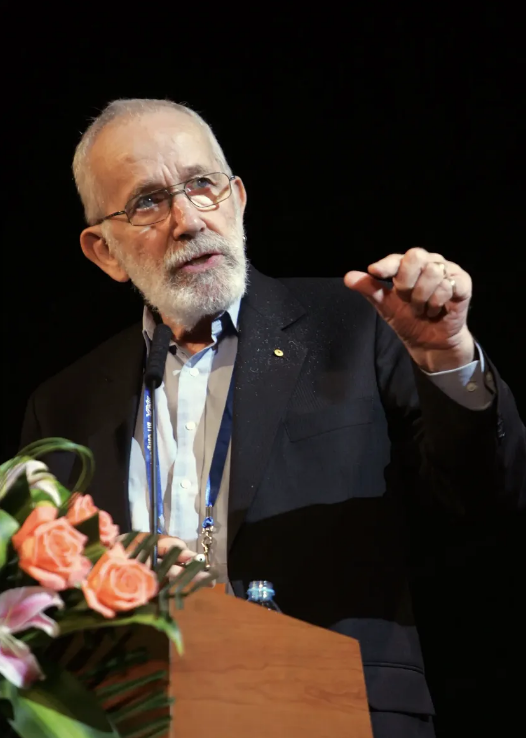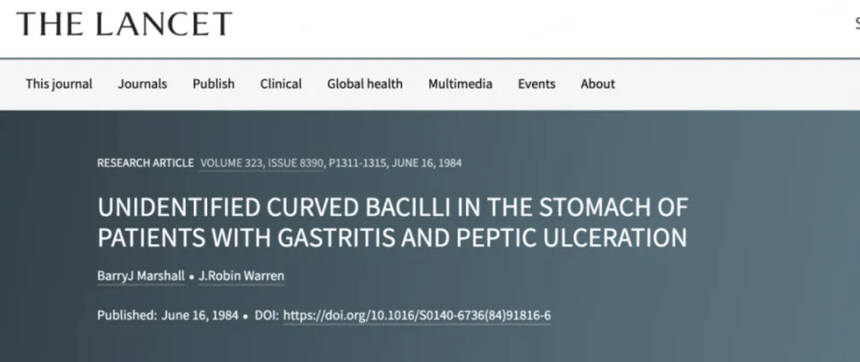Please click the button below to go to our email login page
|
From epilepsy patients to Nobel Prize winner,what kind of legendary experience did he have? !Robin Warren, a winner of the Nobel Prize in Physiology or Medicine, passed away on 23 July at the age of 87. Robin Warren and his partner Barry Marshall jointly discovered the connection between the bacterium Helicobacter pylori (H. pylori) with gastric ulcer and gastritis, revolutionizing the medical community’s understanding of the etiology of gastric ulcers for centuries.
Despite suffering from epilepsy, he has never given up on his passion In 1937, Warren was born in a middle-class family in Adelaide, Australia, and he has shown some “strangeness” since childhood with a solitary personality and preferred to ride alone, stroll around, or read books rather than sports.
At the age of 17, Warren received an admission letter from the University of Adelaide School of Medicine. Unfortunately, on the day before school started, he suddenly fainted on the lawn and was later diagnosed with epilepsy by the doctor. Later, although Warren attempted to control the condition with medication, the outcomes were not satisfactory.
This is cruel for an adolescent boy. But under the encouragement of his mother, he successfully completed his university studies. After graduation, Warren worked at Royal Perth Hospital in Western Australia, where he obtained a discovery changing the world.
“The war of gastric ulcer” for ten long years
Since the 1970s, thanks to the invention of flexible endoscope, doctors can perform biopsy in the stomach. Warren is obsessed with this technology and often observes stomach tissue slices under a microscope.
In June, 1979, Warren found spiral bacteria on the line of stomach when observing samples under the microscope. Two years later, Warren detected over 100 biopsy samples in the stomach and discovered that these bacteria are often accompanied with gastric inflammation, a sign of gastric ulcer.
Just as Warren excitedly presented his discovery to the outside world, the reality poured cold water on him. No colleague believes him and even on medical meeting, most people laughed at Warren’s idea about the found bacteria. In such situation, Warren still won’t succumb, “I’d rather believe in my eyes than textbooks or the medical world.”
In 1983, Warrena nd his assistant Marshall submitted their research results to Lancet; however, although the editors recognized their research, they couldn’t find peers willing to review their research results. Hence, the paper was delayed for several months before being published.
Winning Nobel Prize is not the luckiest thing
In 1994, increasing research proved the existence of H. pylori, and National Institutes of Health (NIH) and World Health Organization publicly supported the research of Warren. Finally, his viewpoint was acknowledged by the mainstream academic community.
The curtain descends onth e prolonged “war of gastric ulcer”. However, the disaster strikes again, and his wife Winnifred was diagnosed with pancreatic cancer. Warren stopped his research career and took one year off to take care of his wife, but Winnifred passed away four months later.
At the 2005 Nobel Prize ceremony, Warren mentioned his wife and said: “As a doctor, she was very clear that “stomach sterility” was a consensus in academia. She could have said I was crazy, but she chose to side with me, and provided a silent support in my most difficult times.”
He was not sentimentally attached to his scientific career and did not be restrained by the reputation and benefits brought by the Nobel Prize. “The only thing I noticed is some interesting bacteria.” After winning the Nobel Prize, Warren said, “Besides, the luckiest thing in my life is meeting Winnifred.” |


